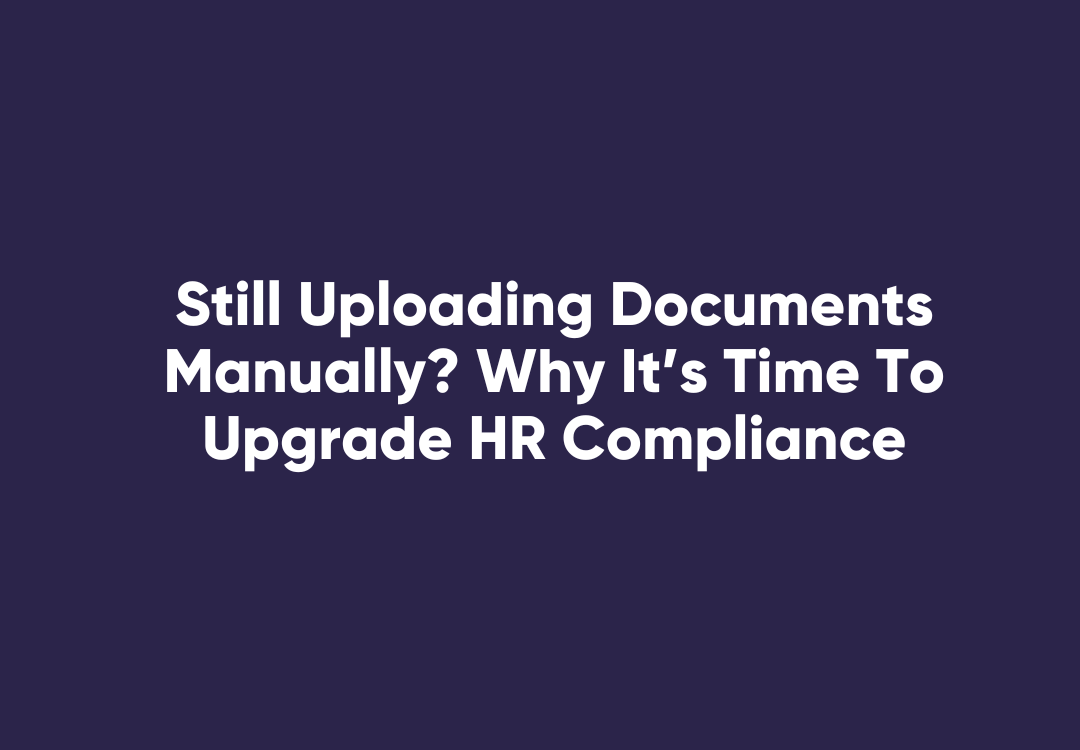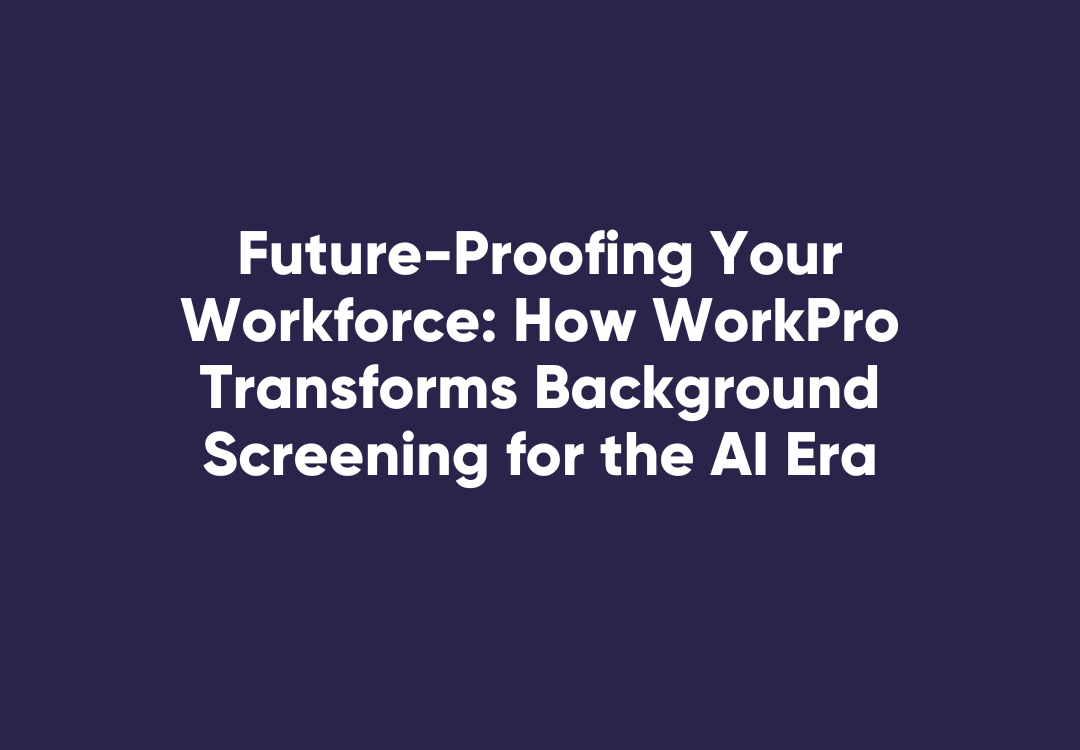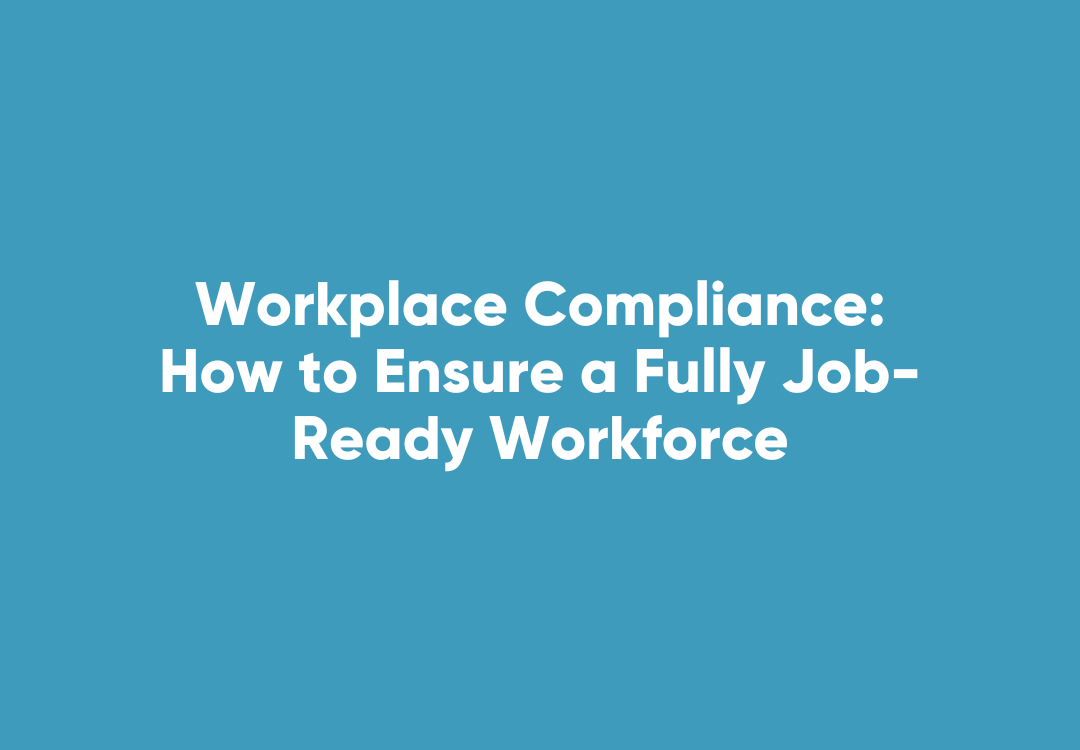Understanding the Different Types of Australian Police Checks
Different Types of Australian Crime Checks
An Australian crime check is crucial for ensuring workplace safety and compliance, so it’s important to understand the differences between them. Additionally, each Australian state and territory may have different requirements and need to adhere to differing legislation and policies. Read on to find out more about understanding the differences between each Australian police check.
What is a Nationally Coordinated Criminal History Check (NCCHC)?
A Nationally Coordinated Criminal History Check (NCCHC) is a common police check used by employers across Australia. This check is conducted by the Australian Criminal Intelligence Commission (ACIC) and involves a search of national databases for disclosable criminal records. The NCCHC covers convictions, court appearances, and pending charges across all states and territories. It's used by employers to assess a candidate's suitability for employment, particularly in roles that require a high level of trust and integrity.
The NCCHC is used for most general employment purposes, including industries such as healthcare, education, and finance. One key advantage of this check is its national scope, as it captures criminal records from all states and territories, providing a comprehensive view of an individual’s criminal history. However, it's important to note that not all offences may be disclosed, as some minor or spent convictions might be excluded based on state legislation and policy.
WorkPro streamlines the police check process by offering an automated system that simplifies this background check component. Through our online platform, entities can easily request, track, and manage NCCHCs, ensuring checks are completed efficiently and in line with regulatory requirements, including privacy. The system is designed to reduce administrative burden and keep you informed with automated updates and reminders. Read more about how WorkPro can support your compliance needs later on.
What is an Australian Federal Police (AFP) Check?
The Australian Federal Police (AFP) Check, while similar to the NCCHC in that it also searches for criminal history, is generally more specific in its application. The AFP Check is typically required for roles within federal government agencies, visa applications, overseas employment, or positions requiring specific security clearances. It is also necessary for adoption processes, and for individuals seeking to work or live overseas.
Unlike the NCCHC, the AFP Check is conducted directly by the Australian Federal Police and includes records relating to federal offenses, such as those involving the Commonwealth. This can encompass crimes like drug trafficking, fraud against government agencies, and certain types of financial crimes. Therefore, while an NCCHC may suffice for most employment purposes, an AFP Check is often mandated for roles with a federal jurisdiction or international implications. For example, an individual applying for a job in a federal department or an Australian citizen seeking a visa to work abroad would likely need an AFP Check.
WorkPro also facilitates
AFP Checks with the same efficiency as our NCCHC service. Our platform enables employers to request AFP Checks seamlessly, ensuring that the specific requirements for federal and international roles are met quickly and accurately.
Differences Across States and Territories
In addition to understanding the differences between the NCCHC and AFP Check, it’s important to recognise that each Australian state and territory has its own specific requirements and processes for criminal history checks. While the NCCHC provides a comprehensive national overview, local laws may dictate what information can be disclosed.
- New South Wales (NSW): Police checks in NSW are similar to the NCCHC and are widely used for employment purposes. However, they follow state-specific guidelines for what can be disclosed, often excluding minor offenses and spent convictions. This can include findings of guilt (whether or not a conviction was recorded), court convictions, and certain traffic offenses.
- Victoria (VIC): Police checks in Victoria include both local and national criminal history, with specific legislation around spent convictions that may limit the disclosure of minor offenses. This can include court appearances and outcomes of all criminal offences considered in court, including minor and serious convictions, jail sentences, and some driving infringements.
- Queensland (QLD): Police checks in QLD cover disclosable court outcomes in the state as well as national records. They are particularly important for roles involving children and healthcare. Some information that may be disclosed includes convictions for criminal offences resulting from prosecutions initiated by Queensland Police Service (QPS) officers, good behaviour bonds and other court orders, plus more.
- Western Australia (WA): A police check in WA will disclose a person's criminal history, including convictions and pending charges from all Australian jurisdictions, with some exceptions for spent convictions.
- South Australia (SA): SA requires police checks for many roles, especially in education and healthcare. The state has specific laws on the disclosure of criminal records, particularly regarding spent convictions. The check can include details of any proven court outcomes, active warrants, plus more.
- Tasmania (TAS), Northern Territory (NT), and Australian Capital Territory (ACT): These regions conduct police checks that include national criminal history, with each territory having guidelines on what is disclosed based on local laws.
WorkPro’s Police Check Services
Managing the complexity of criminal history checks across different states and territories can be challenging for employers. This is where WorkPro comes in, offering streamlined and efficient police check services. Our solution simplifies the process by providing a single, integrated system that covers all states and territories, ensuring that you receive the most relevant and up-to-date information.
WorkPro provides:
- Bulk Requests: Send multiple police check requests at once, saving time and reducing administrative overhead.
- Automated Rechecks: The platform offers automated alerts and reminders for rechecks, ensuring that your workforce remains compliant over time.
- Secure Information Management: WorkPro securely manages and stores all information, providing peace of mind that your data is protected and accessible when needed.
- Fast Implementation: WorkPro’s system is designed for quick deployment, allowing you to start processing checks immediately without lengthy setup times.
- Comprehensive Reporting: The platform offers on-demand compliance reporting, giving you clear insights into the status of checks across your workforce.
WorkPro’s police check services are part of our broader suite of
compliance solutions, which include
background checks,
eLearning, and
credential management, all accessible from one smart dashboard. This holistic approach simplifies compliance management and allows employers to make informed decisions quickly and efficiently.
Adhering to Regulations
It’s important to note that as of 1st July 2024, the Australian Criminal Intelligence Commission (ACIC), the custodian of the National Criminal database, released its new Agreement. There are several updates and changes, some of which are noted below, which come into effect on 1st January 2025.
Identity Documents: The ACIC has reduced the number of identity documents that are required for an Applicant to upload, from four to three.
Parents/Guardian Consent: Currently a parent/guardian only needs to sign and date the application form for applicants who are under 18. This will be adjusted so that a parent/guardian also needs to provide a linkage of identity.
Document Verification Service: WorkPro has rolled out its AI solution, including a Document Verification Service (DVS), and Optical Character Recognition (OCR) software, with Biometric Facial Verification software to be deployed later in 2024. While not mandated by ACIC, this is part of WorkPro’s commitment to enhancing personal security and the candidate experience
Understanding the different types of crime checks in Australia is essential for ensuring compliance and making informed hiring decisions. While the
Nationally Coordinated Criminal History Check is suitable for most employment purposes, an
Australian Federal Police Check may be required for federal or international roles. Additionally, employers must be aware of the nuances in criminal history checks across different states and territories to ensure they meet all legal and regulatory requirements. By selecting the right type of check for your needs, you can better protect your business and maintain a safe, compliant workplace.
Contact WorkPro now to help streamline your Australian police check process.


